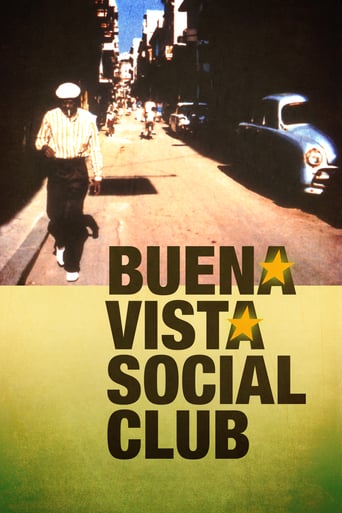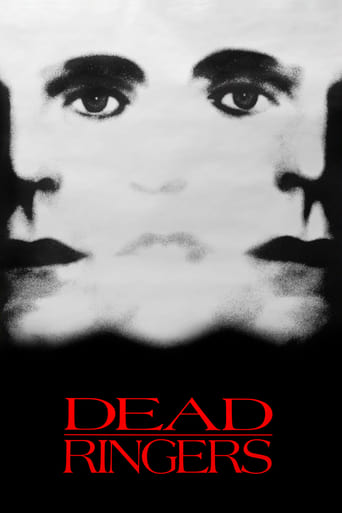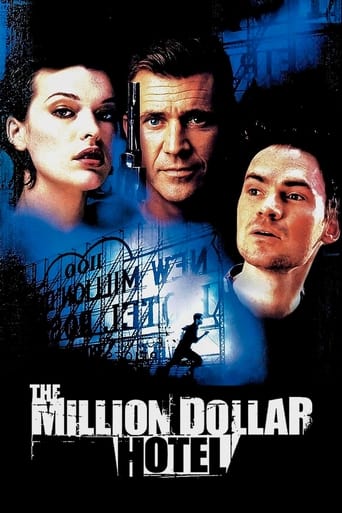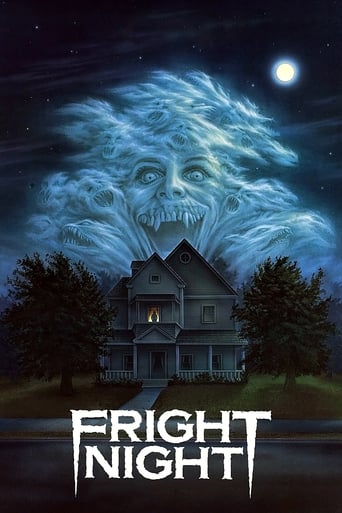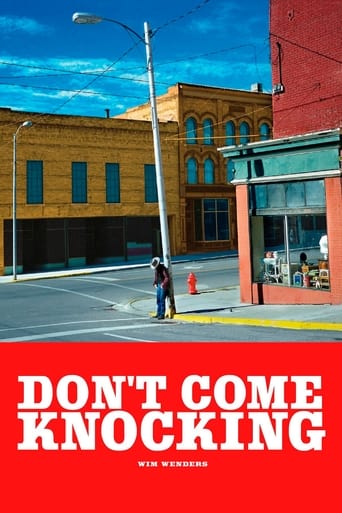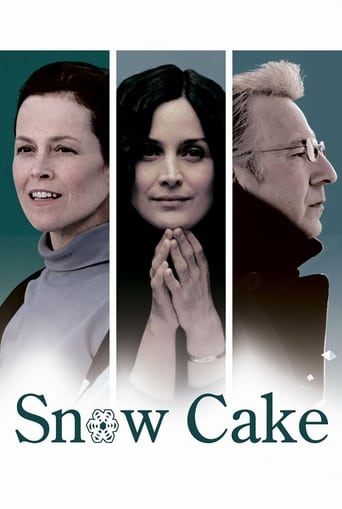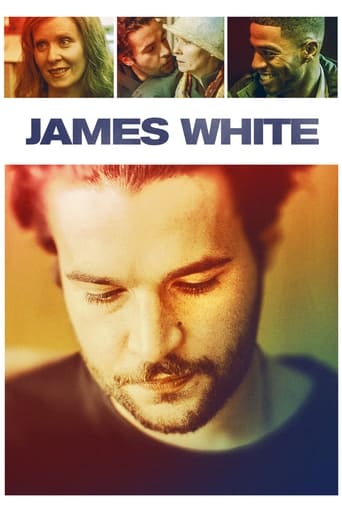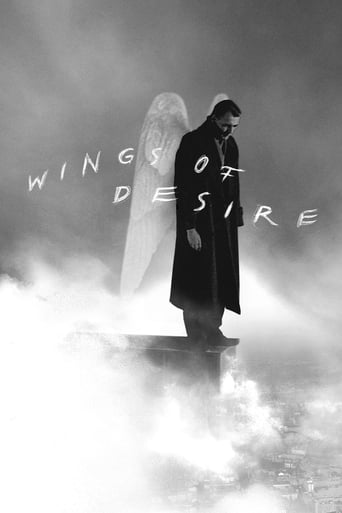


Wings of Desire
Two angels, Damiel and Cassiel, glide through the streets of Berlin, observing the bustling population, providing invisible rays of hope to the distressed but never interacting with them. When Damiel falls in love with lonely trapeze artist Marion, the angel longs to experience life in the physical world, and finds -- with some words of wisdom from actor Peter Falk -- that it might be possible for him to take human form.
-
- Cast:
- Bruno Ganz , Solveig Dommartin , Otto Sander , Curt Bois , Peter Falk , Hans Martin Stier , Beatrice Manowski


Similar titles
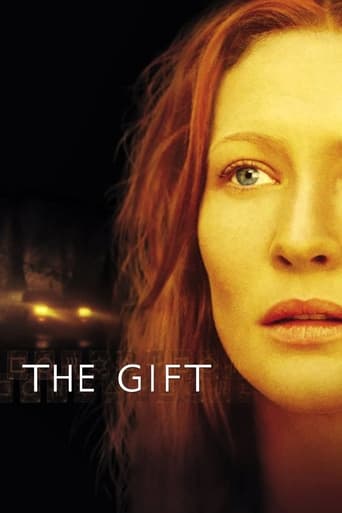
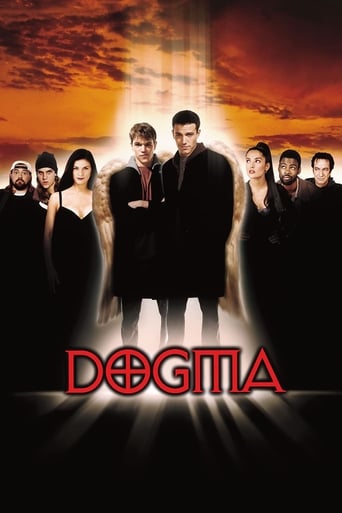
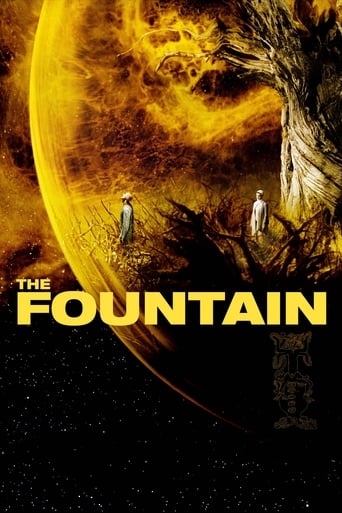
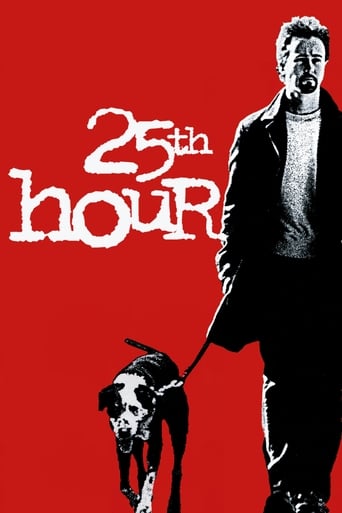
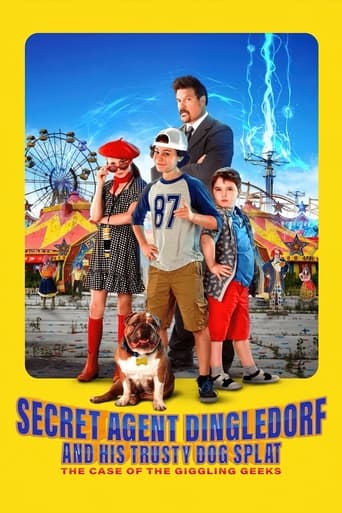
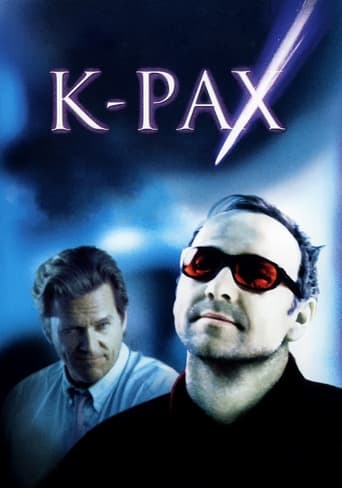


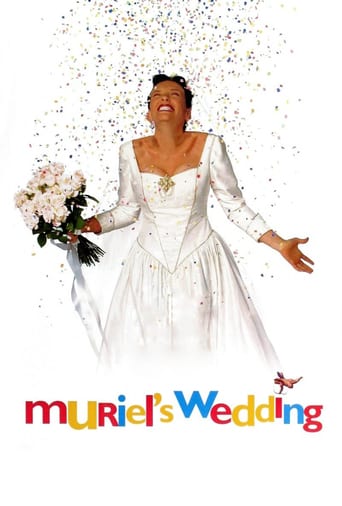

Reviews
Simply Perfect
Better Late Then Never
What a freaking movie. So many twists and turns. Absolutely intense from start to finish.
This is one of the few movies I've ever seen where the whole audience broke into spontaneous, loud applause a third of the way in.
Unseen by the human population, other than those who were once like them, angels wander around bleak Berlin, wondering what its like to be human - to see, to feel, to taste, etc... One falls in love with a beautiful trapeze artist and decides he must become human so as to be with her. How he does this we aren't told, but he does. Once he meets her, he doesn't even need to say a word, she immediately loves him, apparently because he visited her dreams, or some mystical connection. It is an ode to the human experience, with a wonderful transition from observance to experience. The ever flowing camera movement mimics the flight-like nature of angels, and gives the film a dreamy, poetic feel. However all the existentialism becomes quite monotonous, and one can't help but feel it should have been told in half the time. Without a plot it feels aimless, and although the themes are slowly revealed, it is far slower than necessary. It does sink us into the mundane, un-feeling nature of the angels, but it doesn't make for compelling viewing!I can't help but feel there are some cryptic messages behind all this, but like the angels, they are seen only by some, and I shall continue my human existence, invigorating the senses, and wondering what it's all about.
Invisible (or occasionally visible only to children's beady eyes) angels are wandering among us, telepathic to our inarticulate thoughts, but ocularly, lives in a black-and-white realm, sometimes hovering above with a God's eye-view, sometimes passing us by like an apparition, sometimes contemplating our misery with utter poignancy, but they are unable to interact with neither a mortal's live nor the physical world, all they can do is observing, listening, extending a conciliatory but discarnate hand when empathy hits hard, in Wim Wenders' WINGS OF DESIRE, that is the price for a bystander's infinite existence.In West Berlin, just a few years before the demolition of that infamous wall, two angels Damien (Ganz) and Cassiel (Sander), dwelling in Berlin State Library, among others, confer about their philosophy, their year-round observance and their mission on earth, and divergence starts to crystallize when Damien gets particularly attached to a trapeze performer Marion (Dommartin, in her film debut), submerged entirely in her lonesomeness. Before her circus disbands, and encouraged by an erstwhile angel, the actor Peter Falk, COLUMBO himself, who forsook immortality 30 years ago, Damien decides to follow suit in pursuit of fulfilling his providential encounter with Marion; meanwhile a stolid Cassiel, closely follows an old man Homer (the swan song of the octogenarian Curt Bois, for an extraordinary career spanning over seven decades), sauntering around the city for the remnant of his war-ravaged past, becomes increasingly distressed after witnessing a young man's suicide and refuses Peter's overtures, remains his angelic form against the inexpressible torment as his deathless burden. Wenders' humanistic inclination melds fittingly with Peter Handke's poetic text, namely, the seminal and recurring poem SONG OF CHILDHOOD, monologized from Damien's perspective. It is not a fluke that he was crowned BEST DIRECTOR in Cannes, Wenders takes a great leap of faith in furnishing viewers with those sublime aerial craning shots and meditative dolly sequences, to say nothing of presenting Marion's nail-biting acrobatic performance, and the dichotomy between Angel's sepia-inflected monochrome and a varicolored human world totally nails the tonal shift that lends the film a timeless luster of cinematic appeal, which is not solely on the eye level, but plunges deep into one's psyche, to cogitate on humanity through a purely existential ground. Bruno Ganz is singularly expressive with his soul-reaching gazes and as a newly born human, he manifests a touching impression of elation and amazement that almost becomes mesmeric to behold; also, a supple Solveig Dommartin, gallantly conquers both senses of garish and ethereal while kills it on the trapeze, whereas Peter Falk relishes in his meta-presence with gusto and geniality. Gingered up with live rendition from Simon Bonney's Crime & The City Solution and Nick Cave & The Bad Seeds, WINGS OF DESIRE holds dear in its heart the most elemental sensation of being alive, and at the same time, formulates a lucid message to mankind's inescapable pathos, a knockout, through and through.
Greetings from Lithuania."Der Himmel über Berlin" (1987) (or best known as "Wings of Desire") is definitely a movie created not for mainstream audiences. While it's first 30 minutes didn't blew my away to say the least, after some 30 minute mark i got the overall mood and most important feeling for this movie - after i finished it i can say - it's kinda great one. Kinda - because it is rough around the edges: it is not superbly paced (it drags here and there), you can clearly see when many extras are staring at the camera or crew behind it or even some bad "acting" from them and it kinda lacks a more strait narrative during it's first half hour. But then this movie got better, a lot.Overall, "Wings of Desire" is surely not for everyone. It's more like a poetry movie about the ideas, and there are many, deep and haunting ones. Acting by lead actors were very solid. Directing and screenplay are inspiring. And there is a very special appearance by Columbo himself Peter Falk as ... Peter Falk. This is a one very special appearance. And one unusually rough but kinda great movie overall.
This is the project great makers undertake without exception from Welles to Iwai; if those things which you can't touch with the hand can be felt to exist, yearning, memory, thought, if right now you can recall an image, it means this space extends around us and is a part of us, so how can this be surrounded with the camera, acknowledged beneath the story and allowed to float as life?It's a great joy to have this, Wenders repeatedly tried. He knows Buddhism, how narratives of the mind obscure a true perception, how dust settles on mirrors. He may or not know that both Buddhists and contemporaneous Greeks early on identified liberating wisdom as the right use of appearances, the link is Alexander's travel to India. And he must know that since the Greeks divinity in the West, apprehension of god, has been implicitly woven with the mind that attempts to transcend itself.So Wenders here is at his most ambitious about this, liberation in life, about death and (literal) god we can only have imaginations anyway. One of these imaginations is used here, the notion of angels in the heavens, but this is only the tool though for floating observation of life unhindered by story, to swim into narratives of mind, then see if we can push beyond and transcend.So an angelic eye swoops down into murky life, the place is Berlin as it contemplates wounds and walls. What do we see there?Our eye floats from one life to the next, one person to another, on one level the film offers a contemporary tapestry of German anxieties. On another the device lets us see more clearly into the nature of these anxieties - as we approach characters we're flooded by that extended self lost in thought, nothing but disappointment, vexation, desire. Parents fret about their son's loud music in the next room, a young acrobat worries that her circus dream may have amounted to nothing.Internal narration. This is typical Wenders, that side of him that keeps me at bay - Chris Marker in Sans Soleil playfully unfolds ribbons of remembrance, Tarkovsky rich clouds of appearance as they calmly empty out, Wenders can be as evocative as both but chooses to plod in rumination. The monologues grate as in previous films, they're too long. But he also reaches out for more.The higher ('angelic') view that brushes with earthly despair but flies off again finds no purpose or solace and only cyclical suffering - what the Buddhists call samsara. All considered, Wenders offers a powerful rendition of mind. Mind as the view that fleets from one thought, one story, to the next. Suffering as rumination and as inability to escape narration.Good, so far. Wenders being German can only feel the burden of history pressing on him, silly zeit and sein. But then finally we have the return to things as one of the angels decides to enter time and mortality. So how does Wenders enter this shift?If we could somehow only know this ethereal life of pure spirit in eternal peace that we've always yearned for, a disembodied mind that hovers above things without ever getting tangled up with them (all our notions of an afterlife converge on this), what would we think? Touch would be a profound mystery, having a body that feels wind or heat. I can't stress enough the importance of limits, it's what energizes life, that I don't know all, that I can be surprised and curious, that I can travel from here to there and discover, that it's all in flux and changing, it's why this whole circus matters.So I can see him stressing all the important realizations. Touch, being free to tangle with things and love. Spontaneous appreciation.I find myself rooting for this German as he shucks off the worry about meaning to be able to find it in the tremendous richness of things as they come to be and vanish again, what Herzog for thirty years had to travel to the most absurd corners to witness and pilgrimage, wash logic with doing. What Tarkovsky meditated inwards in memory, Marker in bemused preoccupation with revolution (never attached like Godard), cats and Tokyo.But Wenders meets his own limits once more. Whereas all these guys could transcend, Wenders only limps. A bit of wandering but without real wonder. In place of any of the small possible encounters he could create around Berlin, he gives us a Nick Cave concert again - style. The camera tracks forth and back in a crowd - style. The two lovers finally find each other - but swap monologues again of stale profundity.More dust. Now the Buddhist achievement of The Passenger becomes apparent.

